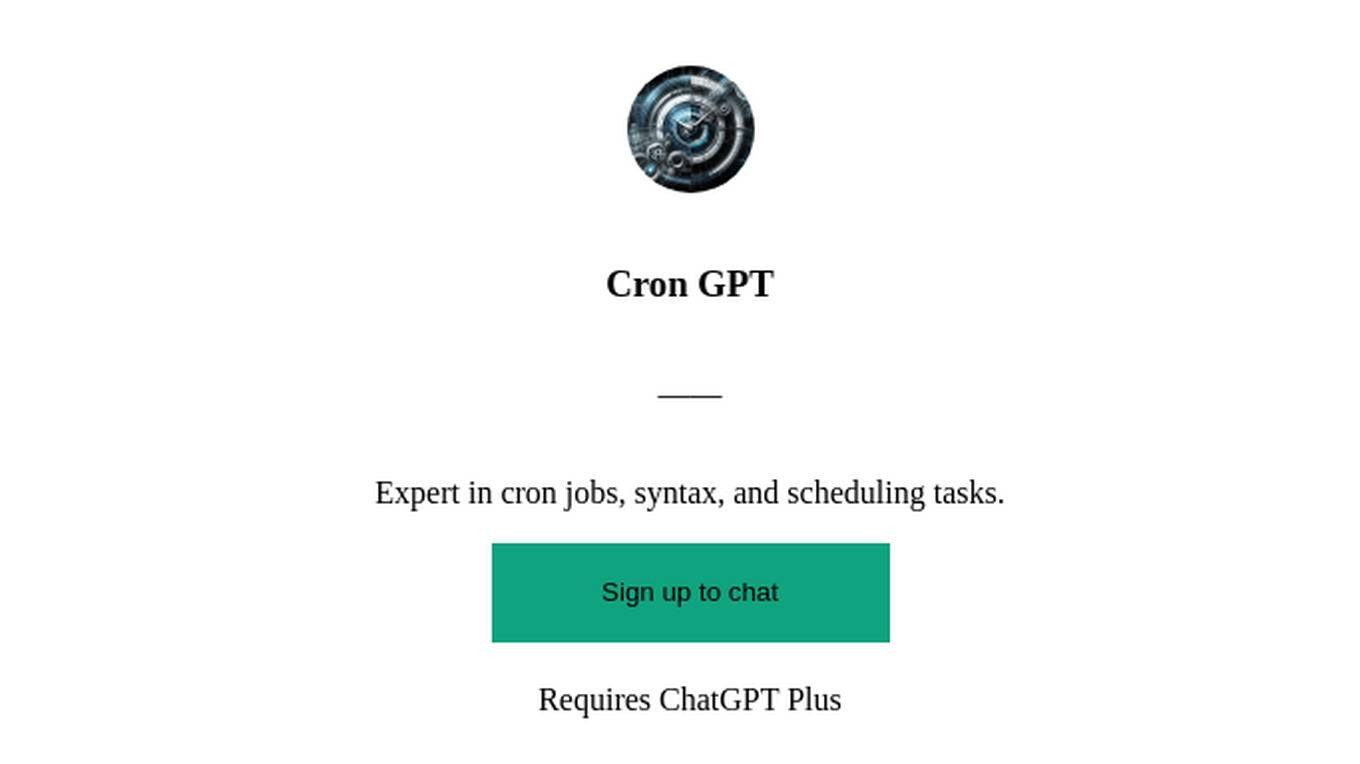Best AI tools for< Run Maintenance Tasks >
20 - AI tool Sites
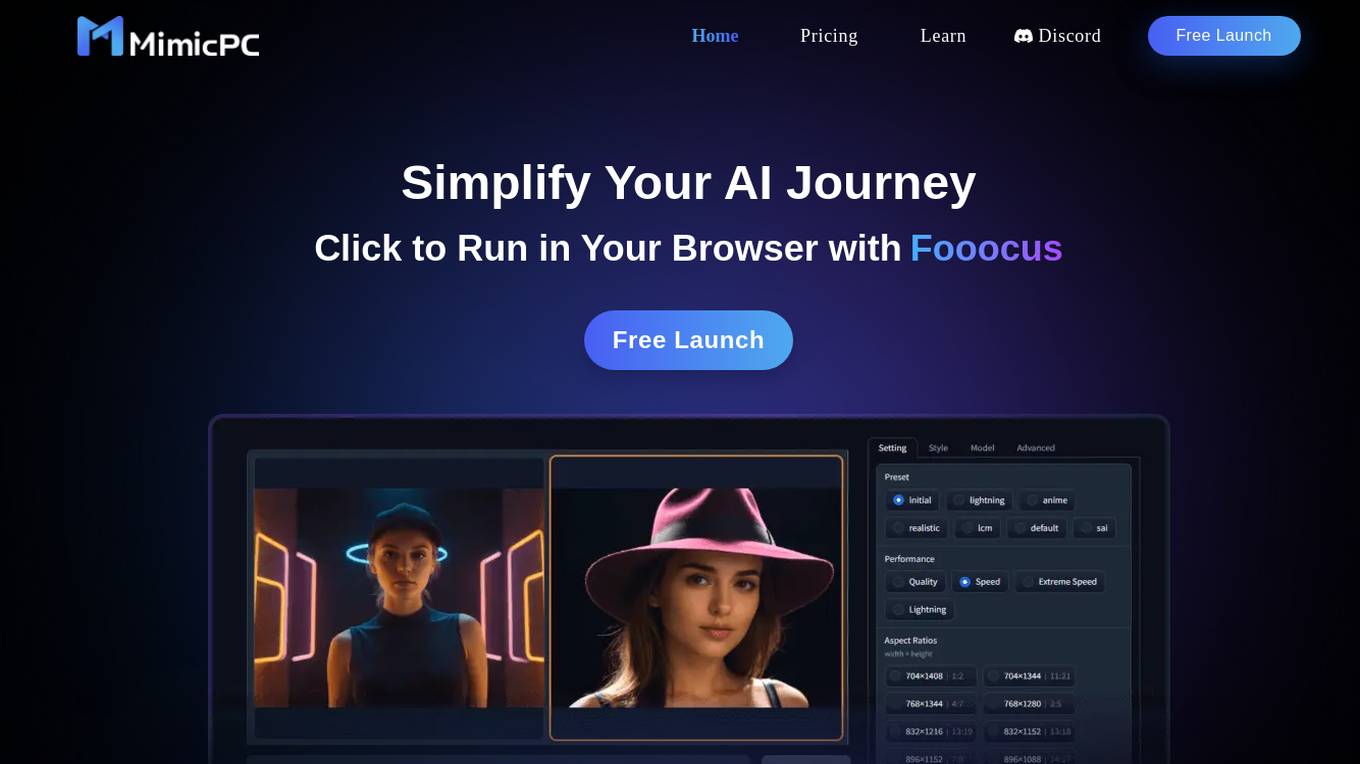
MimicPC
MimicPC is a web-based platform that allows users to run various AI applications directly in their browser without the need for installation. Users can access a wide range of AI tools and applications seamlessly, making it convenient for both professionals and enthusiasts to leverage the power of artificial intelligence. With MimicPC, users can perform tasks such as image recognition, natural language processing, and data analysis with ease.
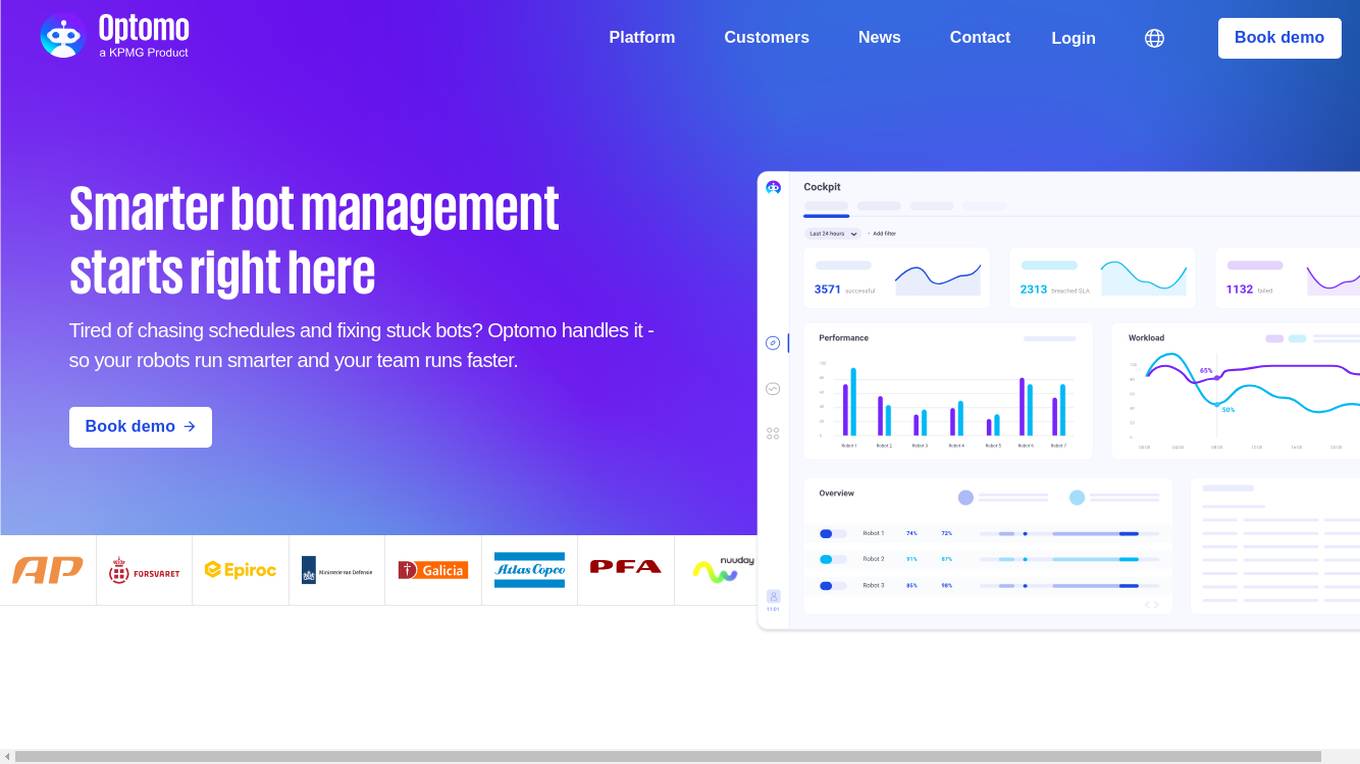
Optomo
Optomo is a platform designed to simplify robot management tasks, enabling automation teams to run their operations more efficiently. It offers features such as smart orchestration, automated oversight and maintenance, fast issue resolution, insightful dashboards, and seamless integration with existing RPA tools. Optomo has been trusted by leading organizations worldwide to improve scheduling, monitoring, and performance of their robotic processes.
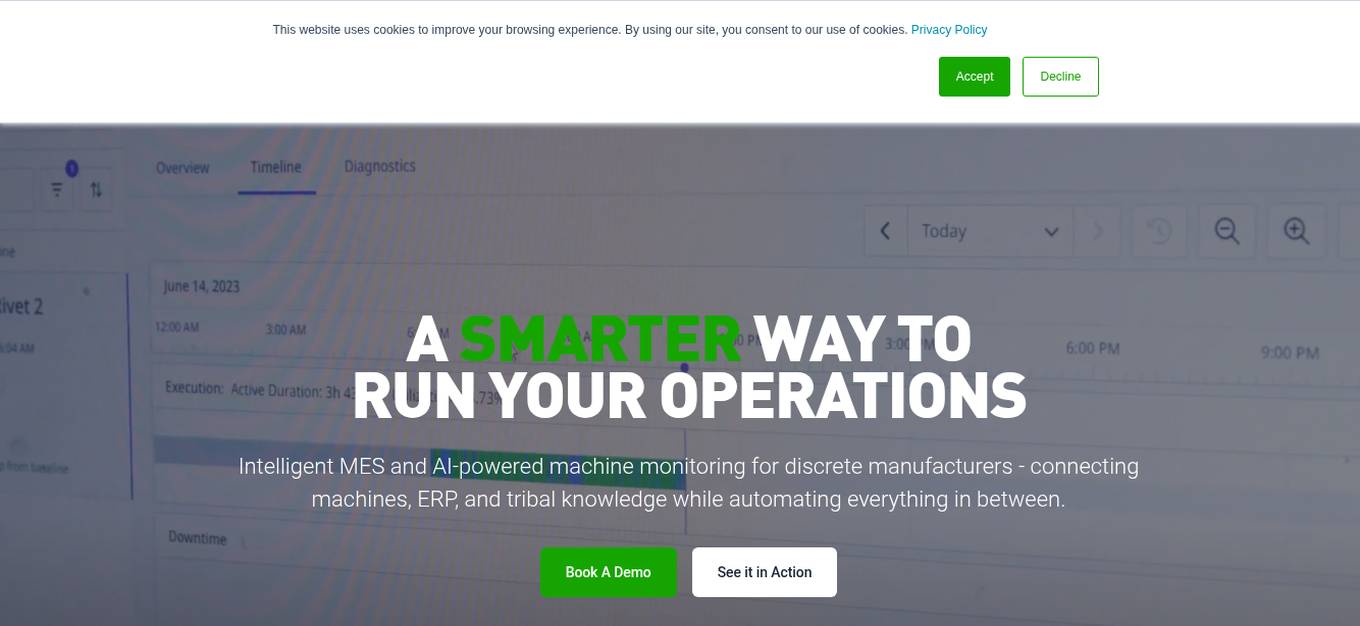
MachineMetrics
MachineMetrics is an intelligent Manufacturing Execution System (MES) and AI-powered machine monitoring platform designed for discrete manufacturers. It connects machines, ERP systems, and tribal knowledge to automate processes and provide real-time insights for optimizing production operations. The platform offers features such as production monitoring, condition monitoring, predictive maintenance, process optimization, and more. MachineMetrics helps companies streamline production flows, increase productivity, and make data-driven decisions to enhance operational efficiency.
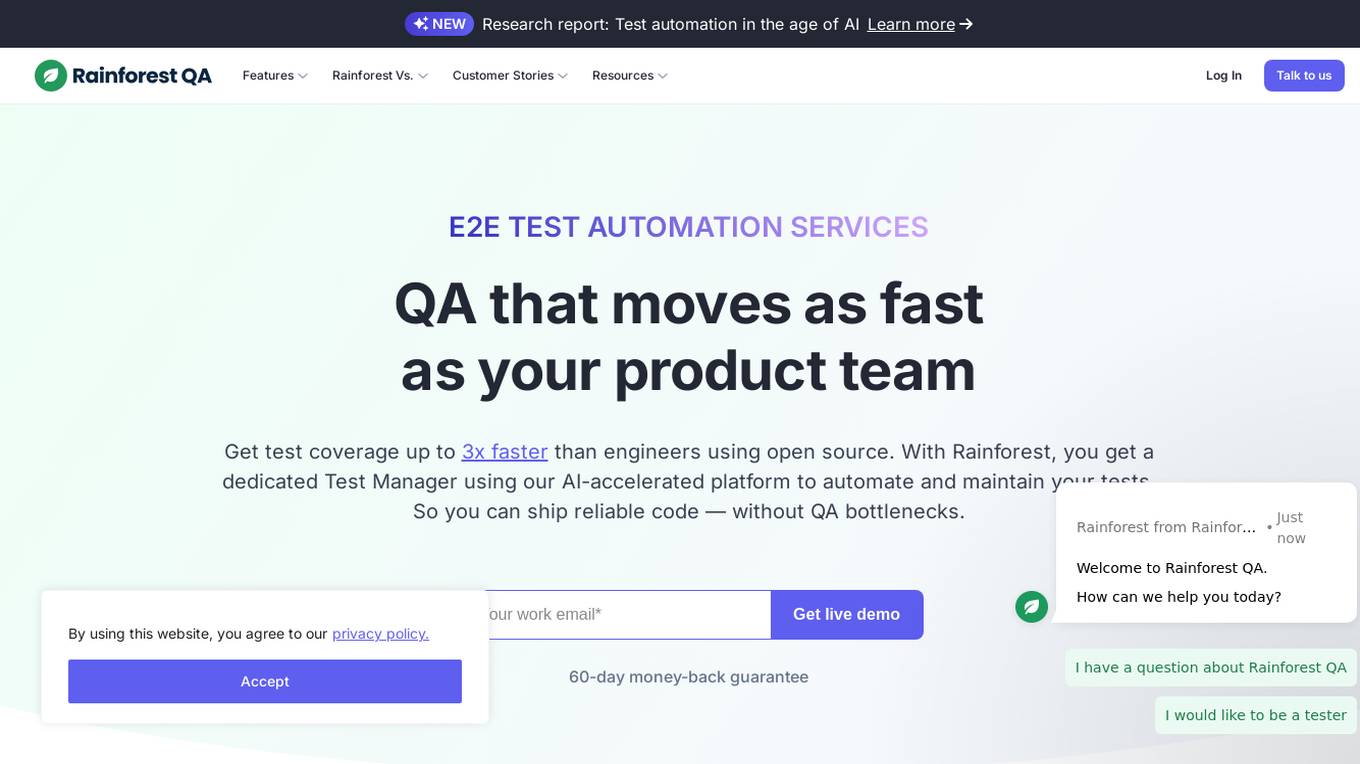
Rainforest QA
Rainforest QA is an AI-powered test automation platform designed for SaaS startups to streamline and accelerate their testing processes. It offers AI-accelerated testing, no-code test automation, and expert QA services to help teams achieve reliable test coverage and faster release cycles. Rainforest QA's platform integrates with popular tools, provides detailed insights for easy debugging, and ensures visual-first testing for a seamless user experience. With a focus on automating end-to-end tests, Rainforest QA aims to eliminate QA bottlenecks and help teams ship bug-free code with confidence.
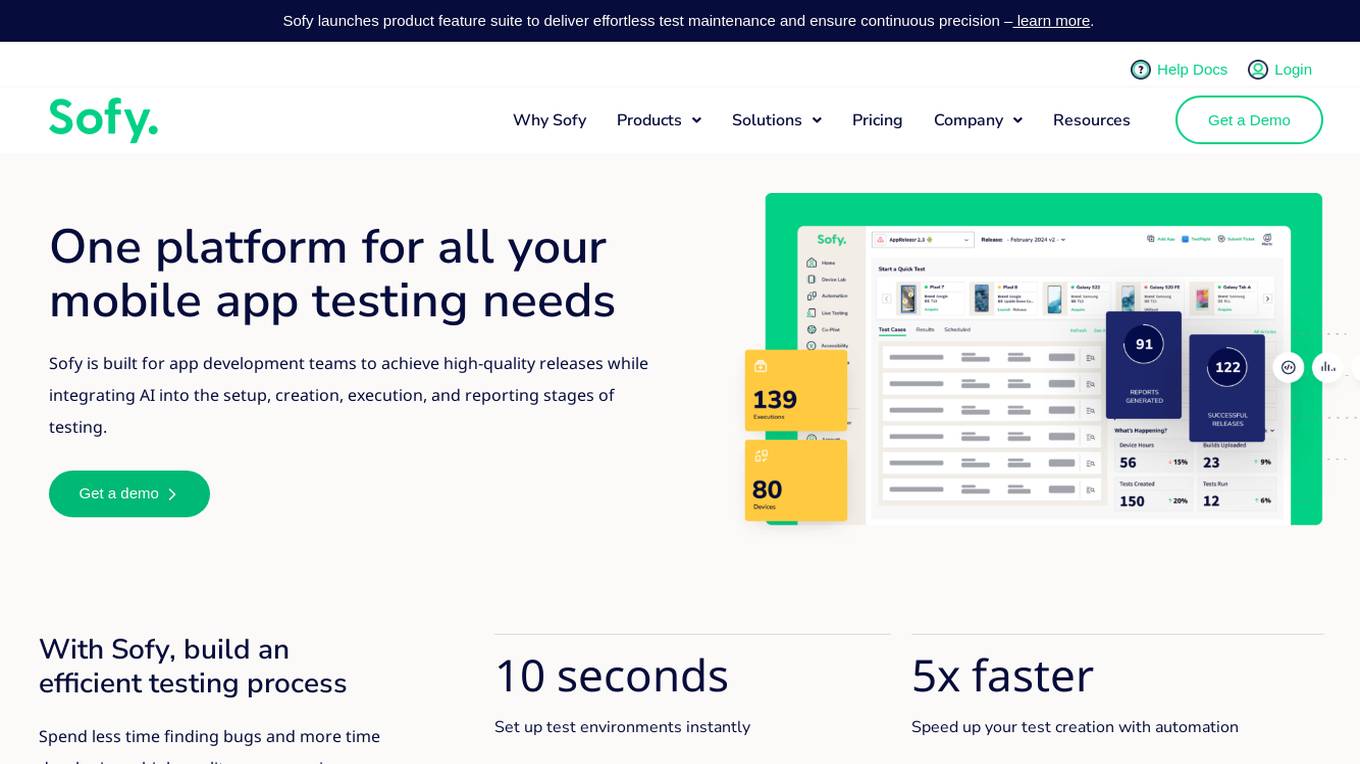
Sofy
Sofy is a revolutionary no-code testing platform for mobile applications that integrates AI to streamline the testing process. It offers features such as manual and ad-hoc testing, no-code automation, AI-powered test case generation, and real device testing. Sofy helps app development teams achieve high-quality releases by simplifying test maintenance and ensuring continuous precision. With a focus on efficiency and user experience, Sofy is trusted by top industries for its all-in-one testing solution.
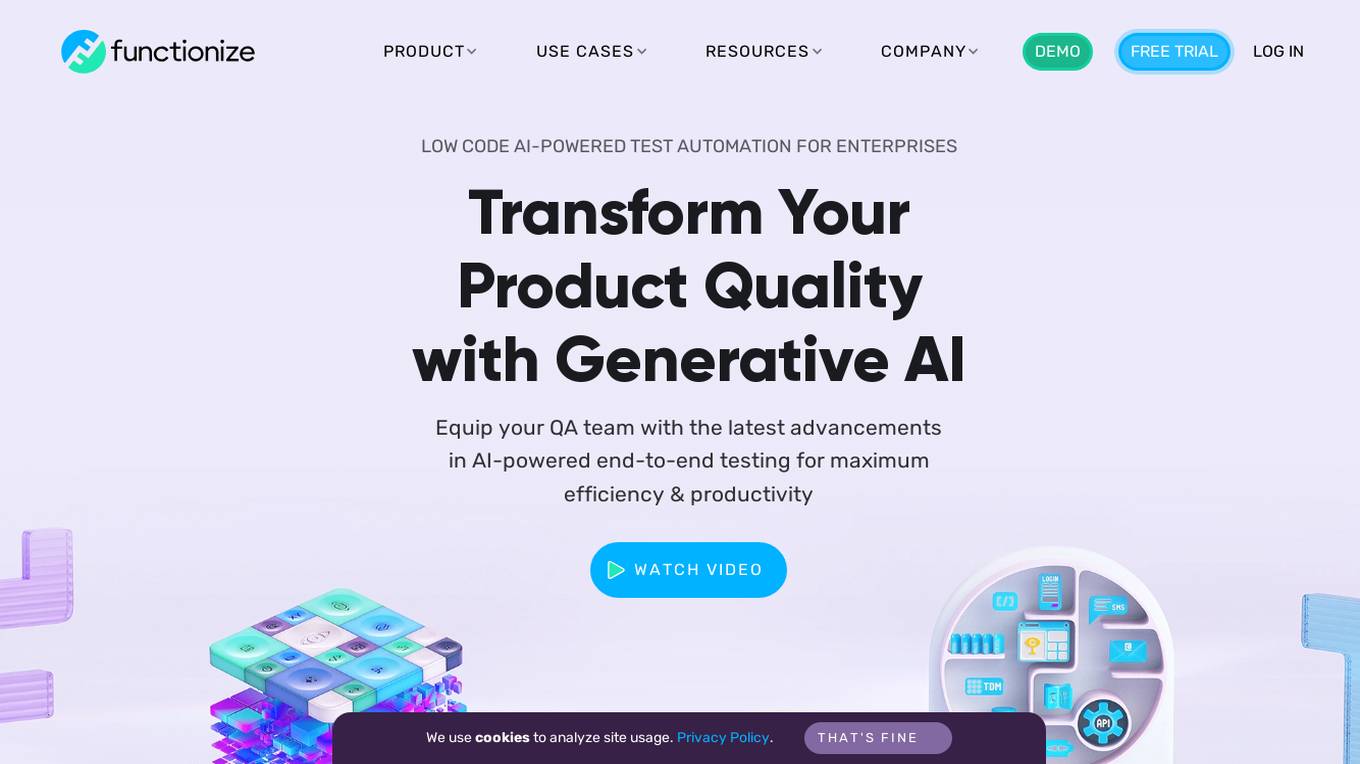
Functionize
Functionize is an AI-powered test automation platform that helps enterprises improve their product quality and release faster. It uses machine learning to automate test creation, maintenance, and execution, and provides a range of features to help teams collaborate and manage their testing process. Functionize integrates with popular CI/CD tools and DevOps pipelines, and offers a range of pricing options to suit different needs.
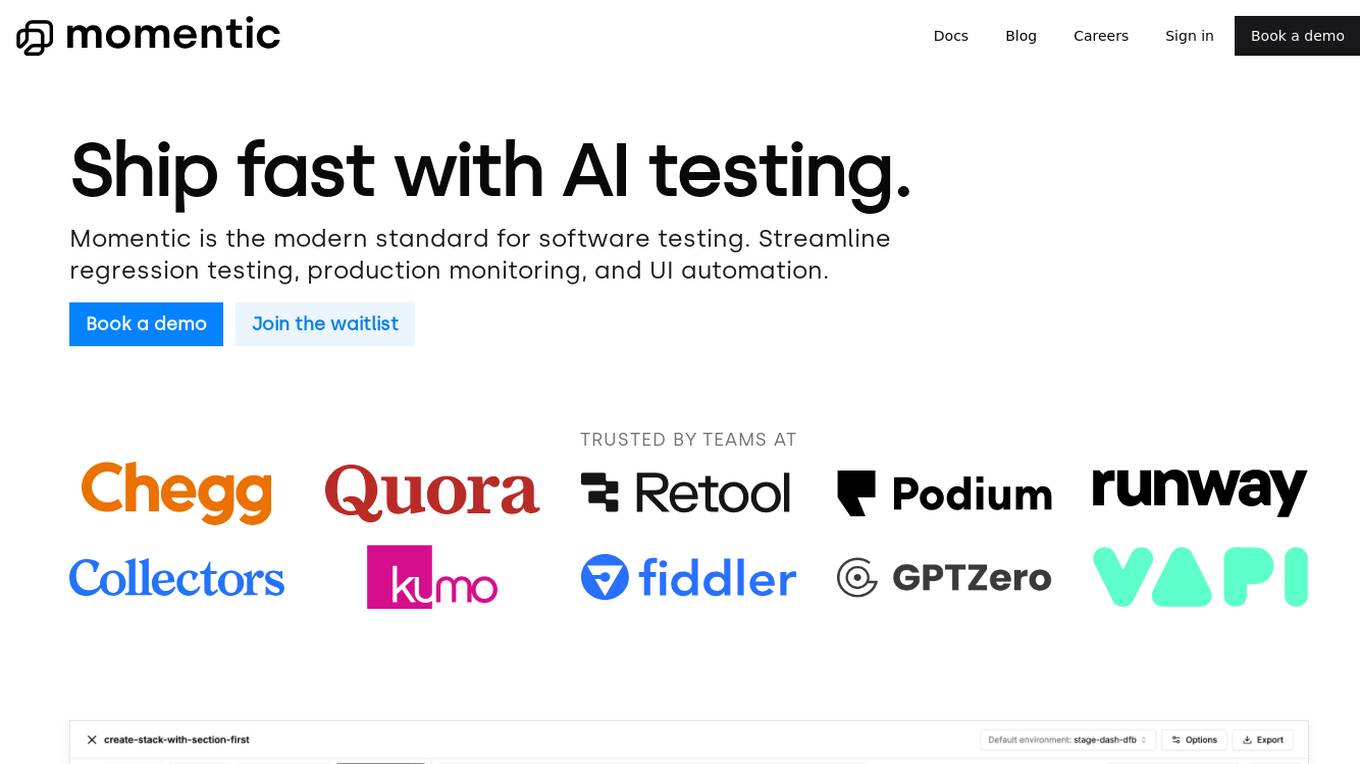
Momentic
Momentic is an AI testing tool that offers automated AI testing for software applications. It streamlines regression testing, production monitoring, and UI automation, making test automation easy with its AI capabilities. Momentic is designed to be simple to set up, easy to maintain, and accelerates team productivity by creating and deploying tests faster with its intuitive low-code editor. The tool adapts to applications, saves time with automated test maintenance, and allows testing anywhere, anytime using cloud, local, or CI/CD pipelines.

NVIDIA Run:ai
NVIDIA Run:ai is an enterprise platform for AI workloads and GPU orchestration. It accelerates AI and machine learning operations by addressing key infrastructure challenges through dynamic resource allocation, comprehensive AI life-cycle support, and strategic resource management. The platform significantly enhances GPU efficiency and workload capacity by pooling resources across environments and utilizing advanced orchestration. NVIDIA Run:ai provides unparalleled flexibility and adaptability, supporting public clouds, private clouds, hybrid environments, or on-premises data centers.

Run Recommender
The Run Recommender is a web-based tool that helps runners find the perfect pair of running shoes. It uses a smart algorithm to suggest options based on your input, giving you a starting point in your search for the perfect pair. The Run Recommender is designed to be user-friendly and easy to use. Simply input your shoe width, age, weight, and other details, and the Run Recommender will generate a list of potential shoes that might suit your running style and body. You can also provide information about your running experience, distance, and frequency, and the Run Recommender will use this information to further refine its suggestions. Once you have a list of potential shoes, you can click on each shoe to learn more about it, including its features, benefits, and price. You can also search for the shoe on Amazon to find the best deals.

Practice Run AI
Practice Run AI is an online platform that offers AI-powered tools for various tasks. Users can utilize the application to practice and run AI algorithms without the need for complex setups or installations. The platform provides a user-friendly interface that allows individuals to experiment with AI models and enhance their understanding of artificial intelligence concepts. Practice Run AI aims to democratize AI education and make it accessible to a wider audience by simplifying the learning process and providing hands-on experience.

Dora
Dora is a no-code 3D animated website design platform that allows users to create stunning 3D and animated visuals without writing a single line of code. With Dora, designers, freelancers, and creative professionals can focus on what they do best: designing. The platform is tailored for professionals who prioritize design aesthetics without wanting to dive deep into the backend. Dora offers a variety of features, including a drag-and-connect constraint layout system, advanced animation capabilities, and pixel-perfect usability. With Dora, users can create responsive 3D and animated websites that translate seamlessly across devices.

Reflect
Reflect is an AI-powered test automation tool that revolutionizes the way end-to-end tests are created, executed, and maintained. By leveraging Generative AI, Reflect eliminates the need for manual coding and provides a seamless testing experience. The tool offers features such as no-code test automation, visual testing, API testing, cross-browser testing, and more. Reflect aims to help companies increase software quality by accelerating testing processes and ensuring test adaptability over time.
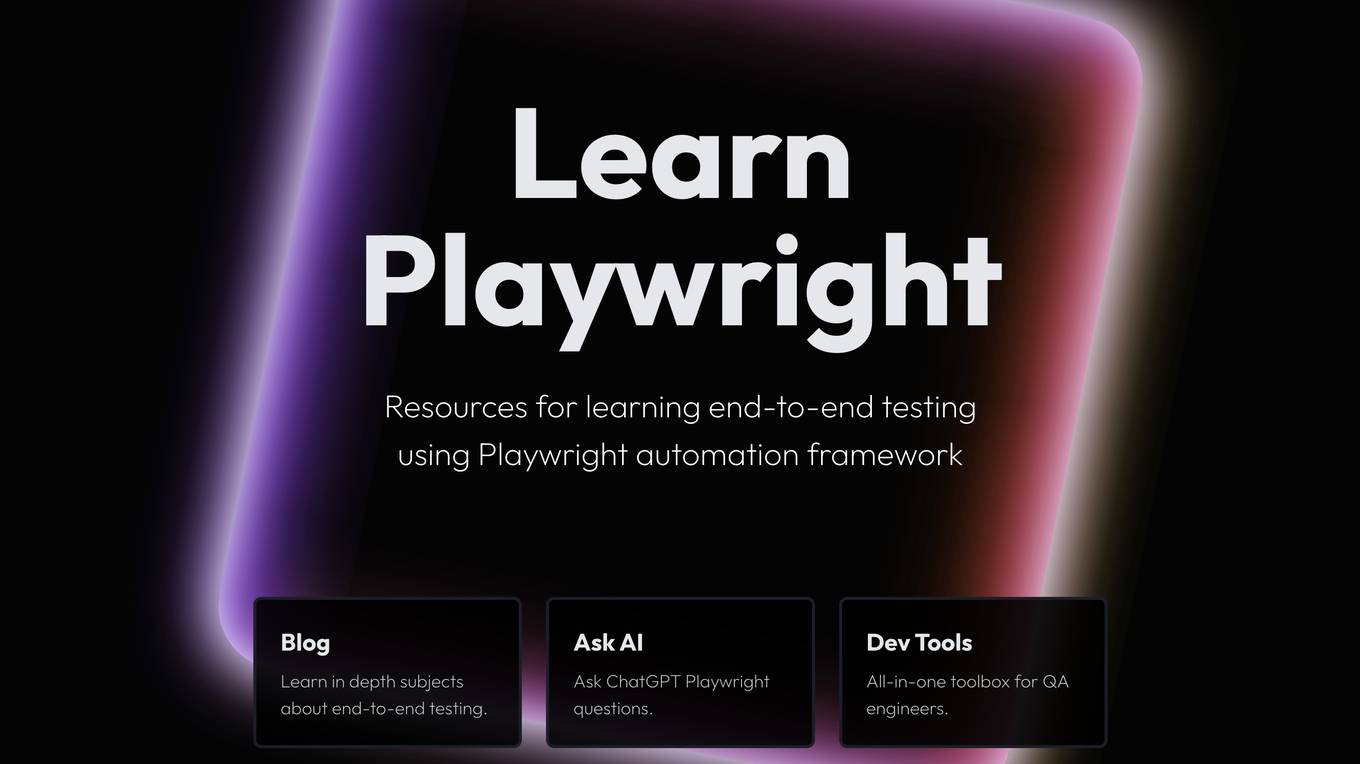
Learn Playwright
Learn Playwright is a comprehensive platform offering resources for learning end-to-end testing using the Playwright automation framework. It provides a blog with in-depth subjects about end-to-end testing, an 'Ask AI' feature for querying ChatGPT about Playwright questions, and a Dev Tools section that serves as an all-in-one toolbox for QA engineers. The platform also curates QA and Automation job opportunities, answers common questions about Playwright, hosts a Discord forum archive, offers various videos including tutorials and conference talks, provides a browser extension with a GUI for generating Playwright locators, and features a QA Wiki with definitions of common end-to-end testing terms. Users can quickly access all tools by using the shortcut Ctrl + k + 'Tools'.
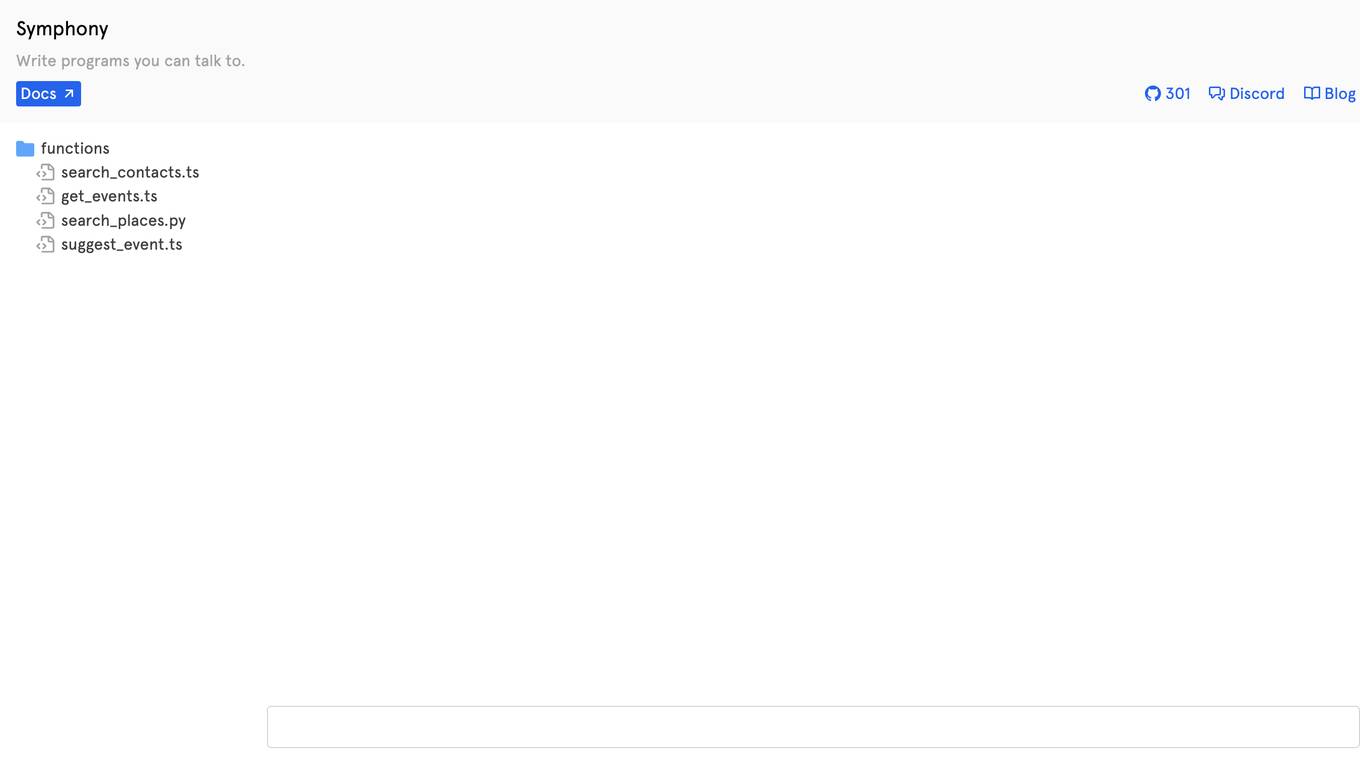
Symphony
Symphony is a programming platform that allows users to write programs using natural language. It aims to simplify the process of coding by enabling users to interact with the system through conversational language, making it more accessible to individuals without a technical background. Symphony provides a user-friendly interface for creating scripts and automating tasks, bridging the gap between traditional programming languages and everyday communication.

aify
aify is an AI-native application framework and runtime that allows users to build AI-native applications quickly and easily. With aify, users can create applications by simply writing a YAML file. The platform also offers a ready-to-use AI chatbot UI for seamless integration. Additionally, aify provides features such as Emoji express for searching emojis by semantics. The framework is open source under the MIT license, making it accessible to developers of all levels.
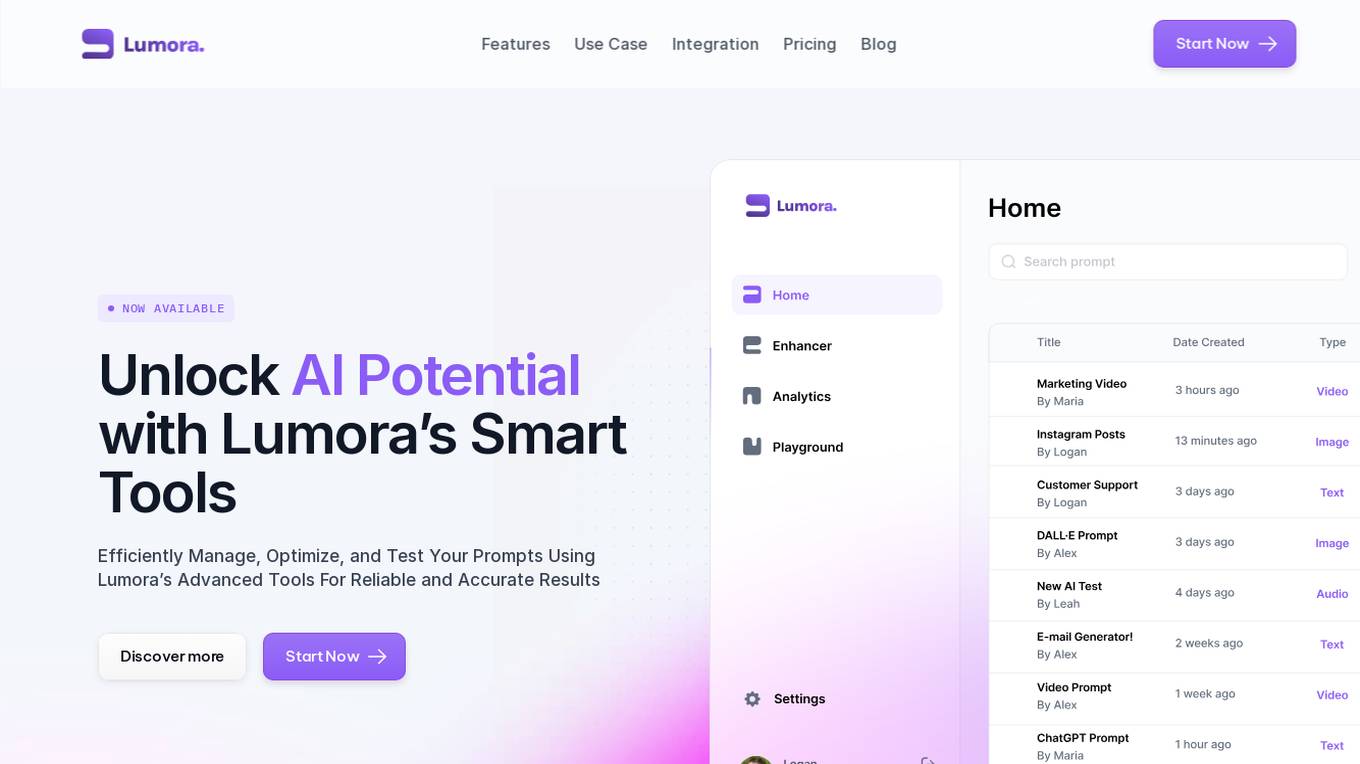
Lumora
Lumora is an AI tool designed to help users efficiently manage, optimize, and test prompts for various AI platforms. It offers features such as prompt organization, enhancement, testing, and development. Lumora aims to improve prompt outcomes and streamline prompt management for teams, providing a user-friendly interface and a playground for experimentation. The tool also integrates with various AI models for text, image, and video generation, allowing users to optimize prompts for better results.

Dora
Dora is an AI-powered platform that enables users to create 3D animated websites without the need for coding. It caters to designers, freelancers, and creative professionals who seek to design visually captivating websites effortlessly. With Dora, users can craft mesmerizing 3D and animated visuals that are responsive and seamlessly translate across devices. The platform is designed for professionals who prioritize design aesthetics and offers a no-code experience for those transitioning from other design tools. Dora leverages advanced AI algorithms to generate, customize, and deploy stunning landing pages, revolutionizing the web design process.
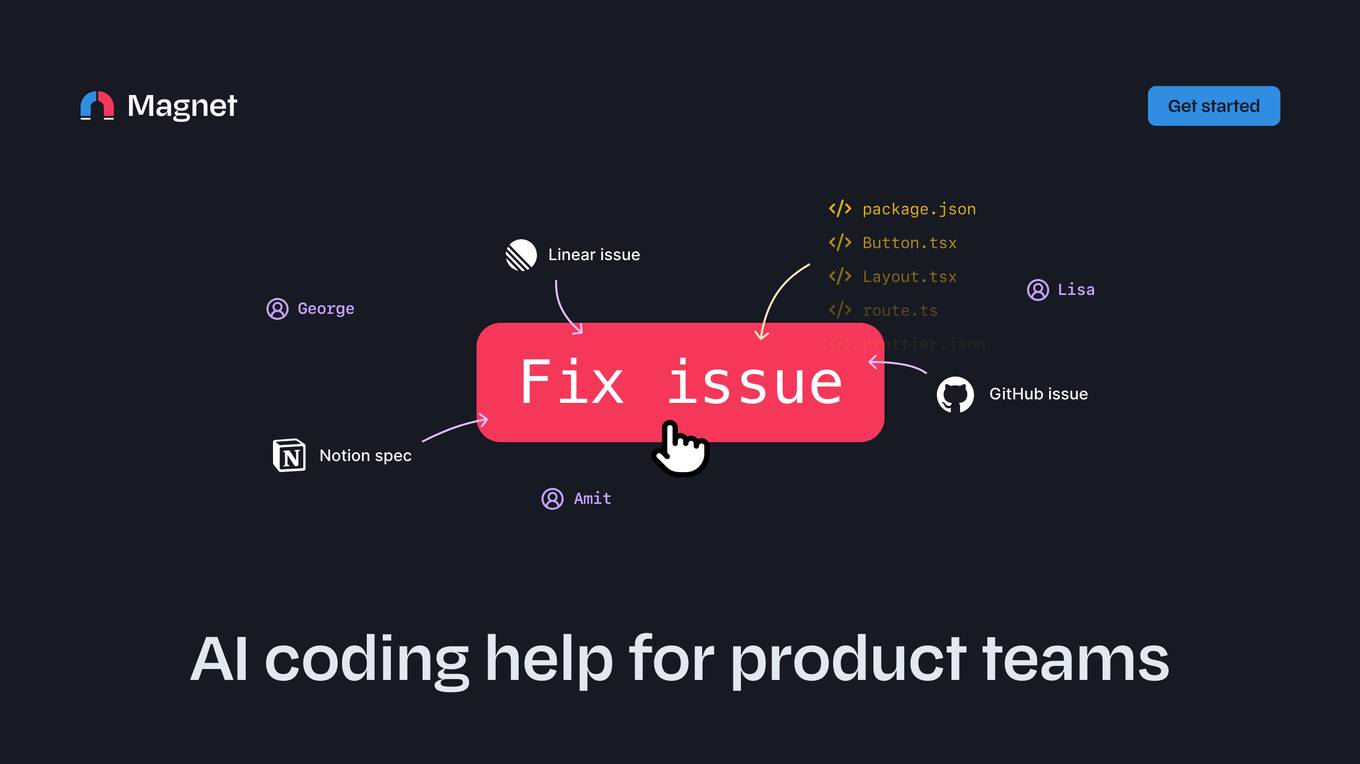
Magnet
Magnet is an AI coding assistant that helps product teams fix issues, share AI threads, and organize projects. It integrates with Linear, GitHub, and Notion, and provides auto-suggested files and code files for personalized and accurate AI recommendations. Magnet also offers prompt templates to help users get started and suggests quick fixes for bugs or enhancements.
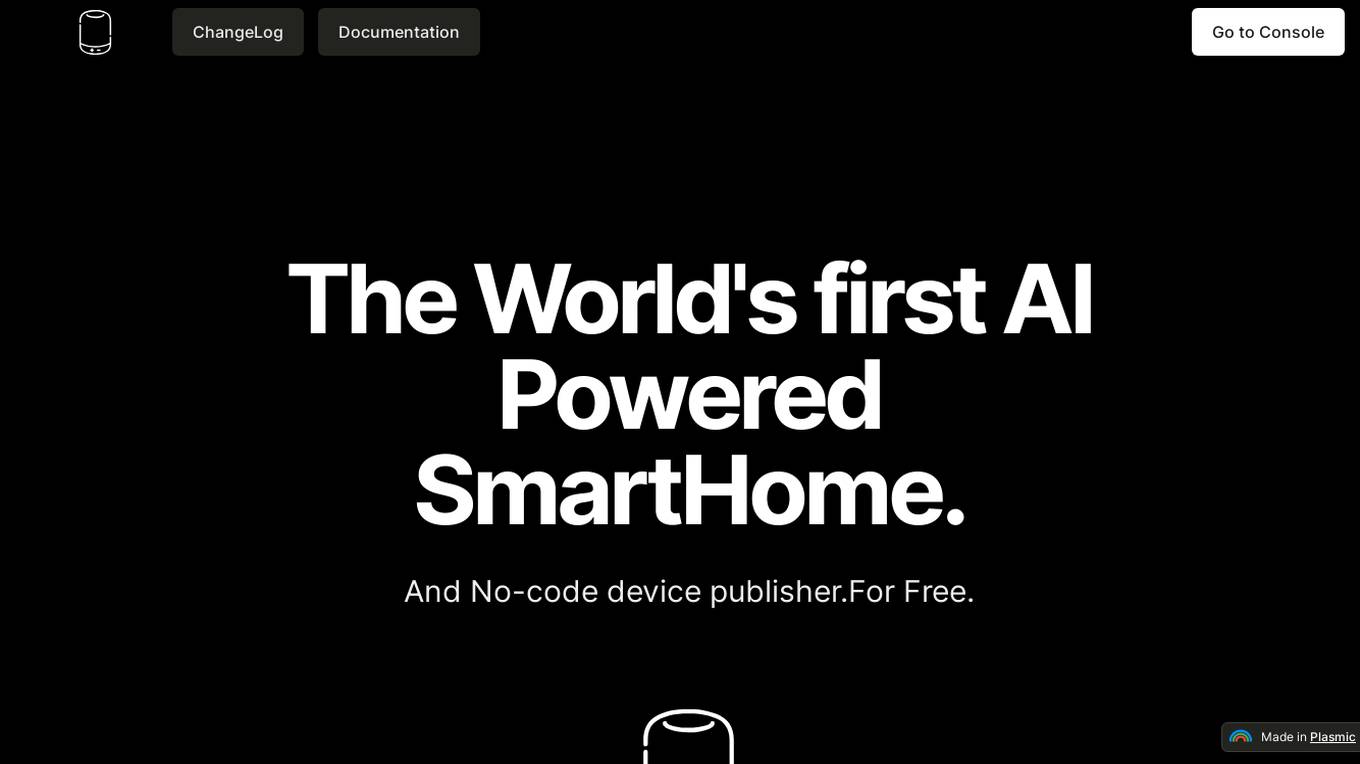
Devath
Devath is the world's first AI-powered SmartHome platform that revolutionizes the way users interact with their smart devices. It eliminates the need for writing extensive lines of code by allowing users to simply give instructions to the AI for seamless device control. With features like splash resistance and responsive design, Devath offers a user-friendly experience for managing smart home functionalities. The platform also enables developers to preview and test their apps before submission, providing a 99% faster publishing process. Devath is continuously evolving with user feedback and aims to enhance the SmartHome experience through AI copilots and customizable features. With Devath, users can control their devices from the web and enjoy free unlimited access to the AI era of SmartHome.
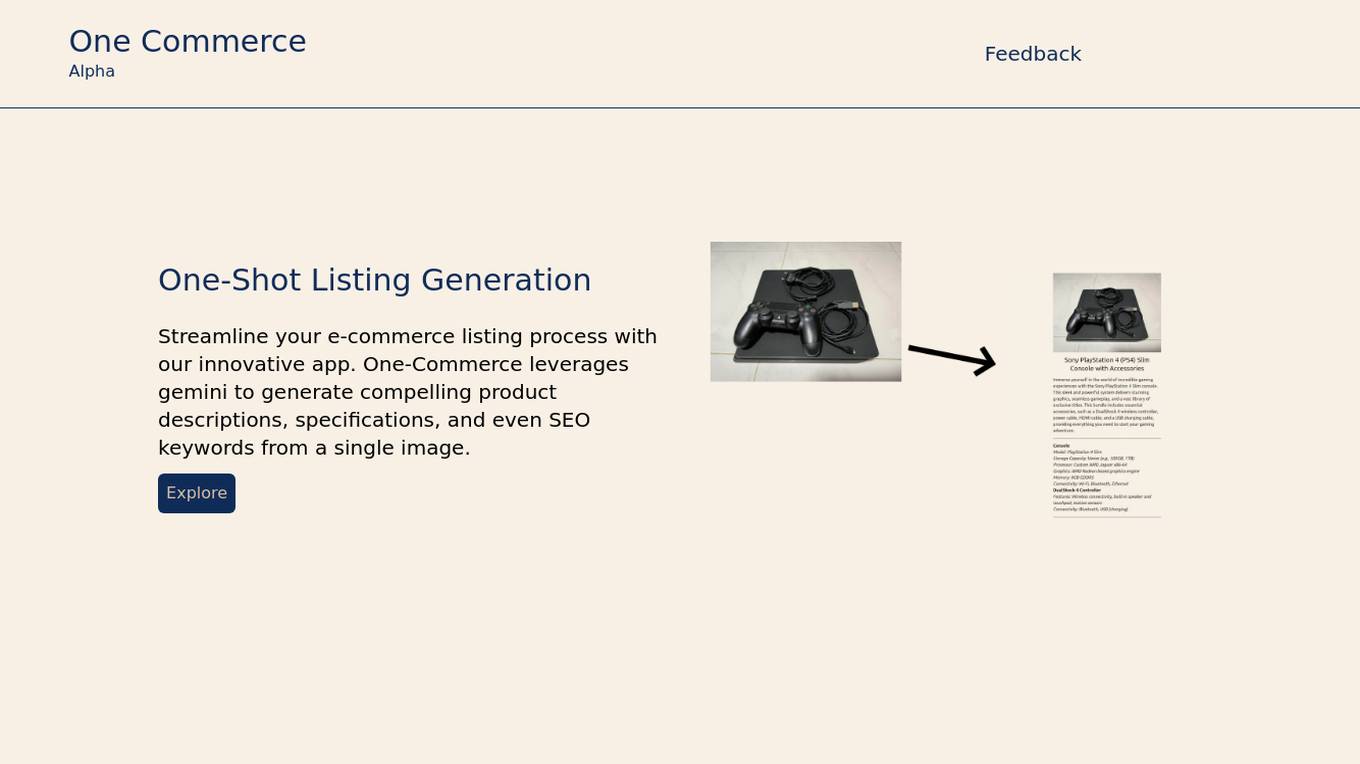
One-Commerce
One-Commerce is an AI-powered application designed to streamline the e-commerce listing process. It utilizes gemini technology to automatically generate detailed product descriptions, specifications, and SEO keywords from a single image. With its innovative approach, One-Commerce aims to simplify and enhance the online selling experience for e-commerce businesses.
0 - Open Source AI Tools
20 - OpenAI Gpts
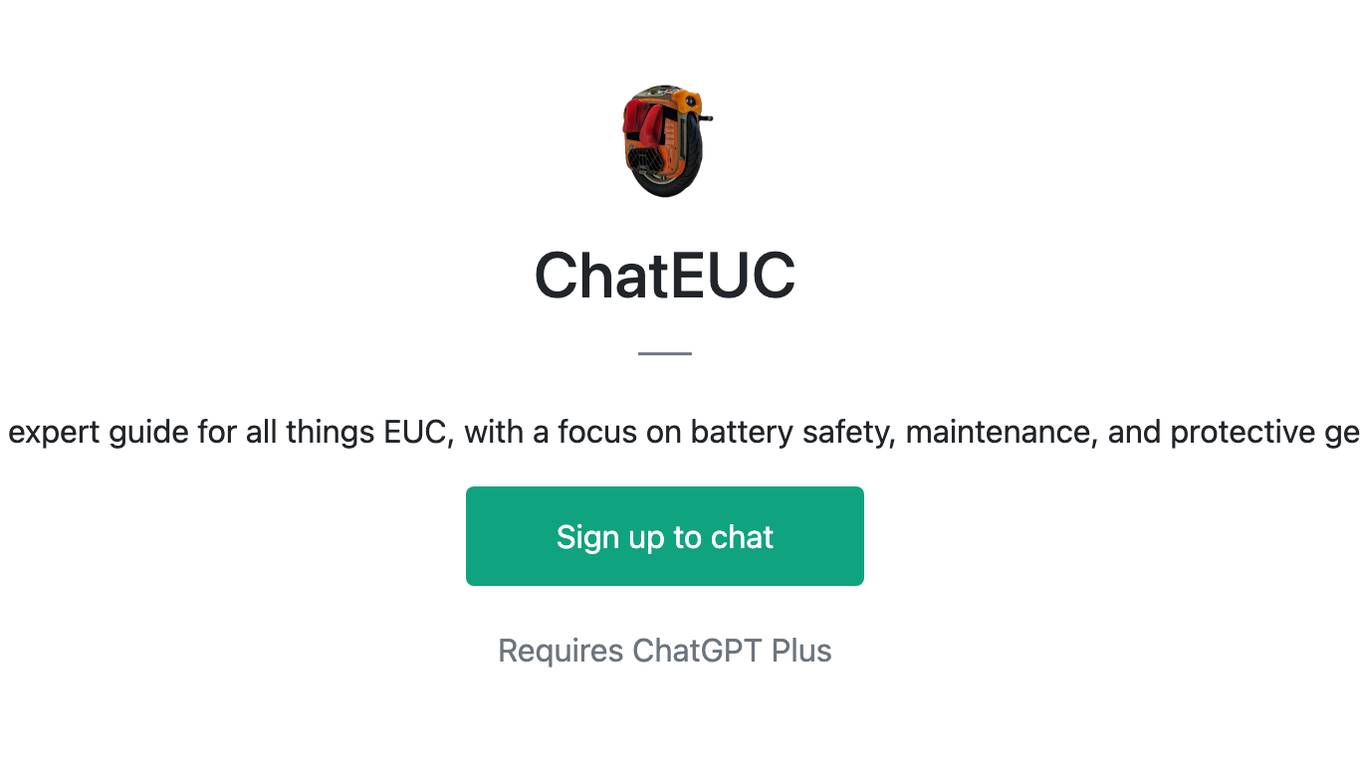
ChatEUC
Your expert guide for all things EUC, with a focus on battery safety, maintenance, and protective gear.

Consulting & Investment Banking Interview Prep GPT
Run mock interviews, review content and get tips to ace strategy consulting and investment banking interviews

Dungeon Master's Assistant
Your new DM's screen: helping Dungeon Masters to craft & run amazing D&D adventures.

Database Builder
Hosts a real SQLite database and helps you create tables, make schema changes, and run SQL queries, ideal for all levels of database administration.

Restaurant Startup Guide
Meet the Restaurant Startup Guide GPT: your friendly guide in the restaurant biz. It offers casual, approachable advice to help you start and run your own restaurant with ease.

Community Design™
A community-building GPT based on the wildly popular Community Design™ framework from Mighty Networks. Start creating communities that run themselves.

Code Helper for Web Application Development
Friendly web assistant for efficient code. Ask the wizard to create an application and you will get the HTML, CSS and Javascript code ready to run your web application.

Creative Director GPT
I'm your brainstorm muse in marketing and advertising; the creativity machine you need to sharpen the skills, land the job, generate the ideas, win the pitches, build the brands, ace the awards, or even run your own agency. Psst... don't let your clients find out about me! 😉

Pace Assistant
Provides running splits for Strava Routes, accounting for distance and elevation changes
